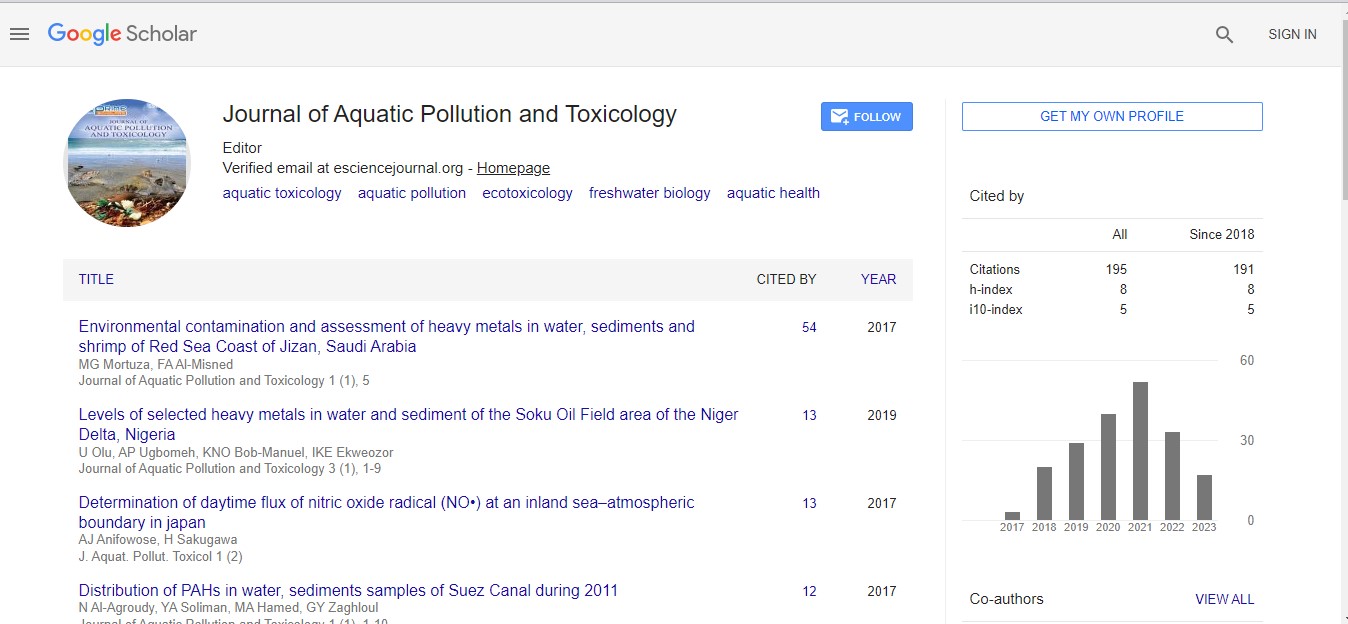Commentary - (2024) Volume 8, Issue 2
Urban Development: Balancing Progress and Sustainability
Jing Wang*
Department of Aquatic Science, Tsinghua University, China
*Correspondence:
Jing Wang,
Department of Aquatic Science, Tsinghua University,
China,
Email:
Received: 29-May-2024, Manuscript No. IPJAPT-24-20016;
Editor assigned: 31-May-2024, Pre QC No. IPJAPT-24-20016 (PQ);
Reviewed: 14-Jun-2024, QC No. IPJAPT-24-20016;
Revised: 19-Jun-2024, Manuscript No. IPJAPT-24-20016 (R);
Published:
26-Jun-2024, DOI: 10.21767/2581-804X-8.2.14
Description
Urban development is a dynamic process that shapes the
landscapes, economies, and societies of our cities. From
towering skyscrapers to bustling streets teeming with activity,
urban areas are hubs of innovation, opportunity, and diversity.
Yet, as cities continue to grow and evolve, the challenge
lies in fostering development that is not only economically
prosperous but also socially inclusive and environmentally
sustainable. At the heart of urban development lies the quest
for progress and prosperity. Cities are engines of economic
growth, attracting investment, talent, and innovation. The
construction of infrastructure, commercial centres, and
residential complexes drives job creation and stimulates
economic activity, contributing to the overall prosperity of
urban dwellers. Moreover, vibrant urban economies offer a
plethora of opportunities for entrepreneurship, education,
and upward mobility, making cities magnets for ambitious
individuals seeking a better life. However, the pursuit of
economic growth must be tempered with considerations
of social equity and inclusivity. Urban development should
not leave behind marginalized communities or exacerbate
existing inequalities. Access to affordable housing, healthcare,
education, and transportation are fundamental rights that
must be safeguarded for all residents, regardless of their
socioeconomic status. Inclusive urban planning that prioritizes
the needs of vulnerable populations ensures that the benefits
of development are shared equitably among all members
of society. Furthermore, sustainable urban development is
imperative in the face of pressing environmental challenges
such as climate change, pollution, and resource depletion. Rapid
urbanization places immense strain on natural ecosystems,
leading to deforestation, habitat destruction, and loss of
biodiversity. Additionally, the concentration of population
and economic activities in urban areas exacerbates carbon
emissions, air and water pollution, and waste generation,
further exacerbating environmental degradation. To address
these challenges, cities must embrace sustainable development
practices that minimize their ecological footprint while
maximizing resource efficiency and resilience. This includes
investing in green infrastructure, such as public transportation
systems, renewable energy sources, and green spaces, to
reduce emissions, improve air quality, and enhance the overall
liability of urban environments. Moreover, sustainable urban
planning strategies, such as compact development, mixed land
use, and green building standards, promote more efficient
land use and reduce urban sprawl, preserving natural habitats
and agricultural lands. Public participation and stakeholder
engagement are essential components of sustainable urban
development. By involving citizens, community organizations,
businesses, and government agencies in the planning and
decision-making process, cities can ensure that development
projects align with the needs and aspirations of local residents.
Moreover, fostering a culture of sustainability through
education, awareness campaigns, and public outreach
initiatives empowers individuals to adopt more environmentally
friendly behaviours and contribute to the collective effort of
building greener, more resilient cities. In conclusion, urban
development is a multifaceted endeavour that encompasses
economic, social, and environmental dimensions. Balancing
the imperatives of progress with the principles of sustainability
requires careful planning, collaboration, and innovation. By
prioritizing inclusive growth, social equity, and environmental
stewardship, cities can unlock their full potential as engines of
prosperity while safeguarding the well-being of current and
future generations. Urban development focuses on planning,
designing, and managing cities to improve quality of life. It
involves infrastructure projects, housing, transportation, and
environmental considerations. Urban planners aim to balance
growth with sustainability and community needs. Urban
development is critical for accommodating global population
shifts towards urban areas.
Acknowledgement
None.
Conflict Of Interest
None.
Citation: Wang J (2024) Urban Development: Balancing Progress and Sustainability. J Aquat Pollut Toxicol. 8:14.
Copyright: © 2024 Wang J. This is an open-access article distributed under the terms of the Creative Commons Attribution License, which permits unrestricted use, distribution, and reproduction in any medium, provided the original author and source are credited.

